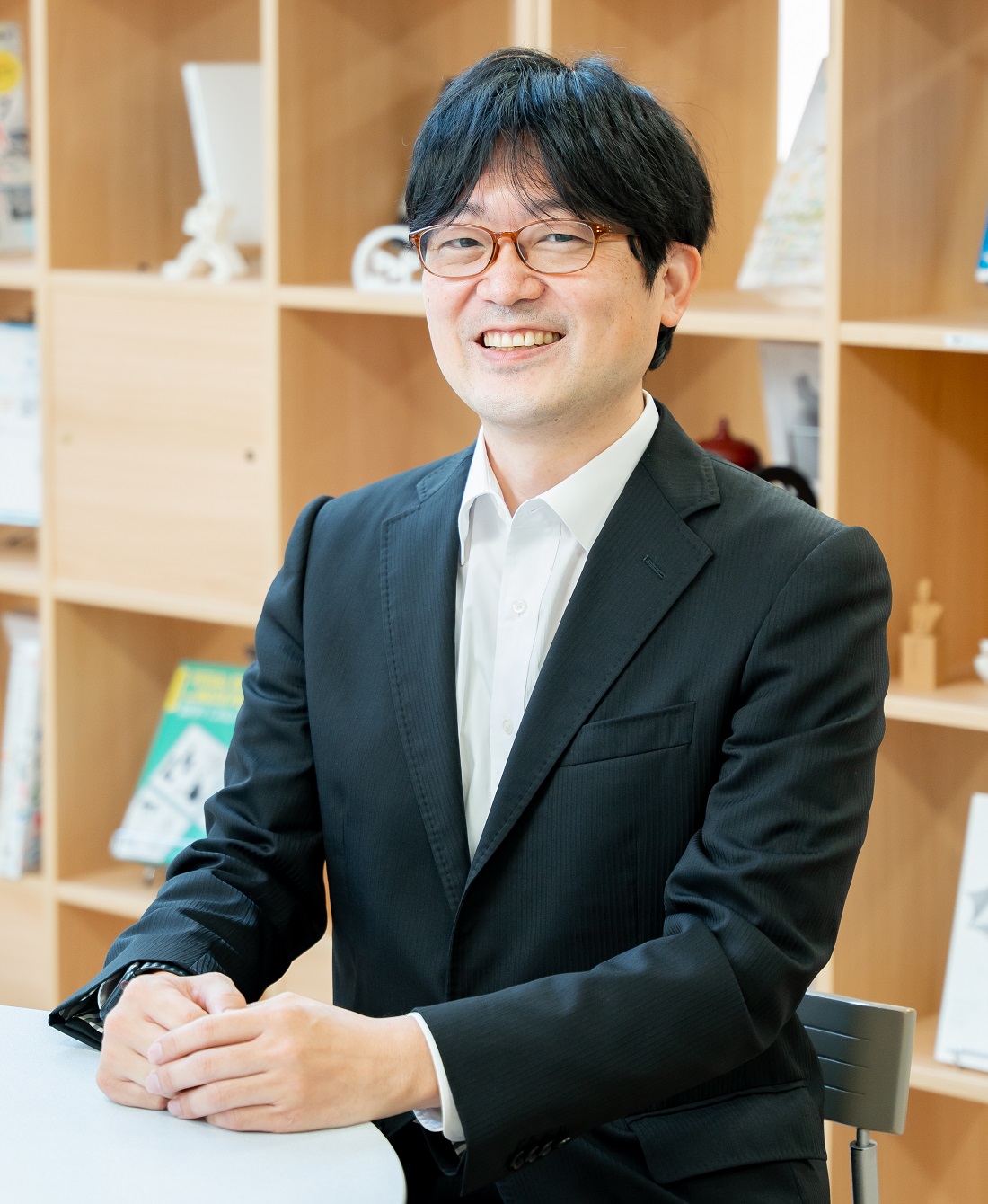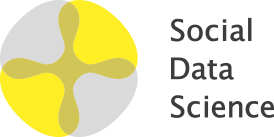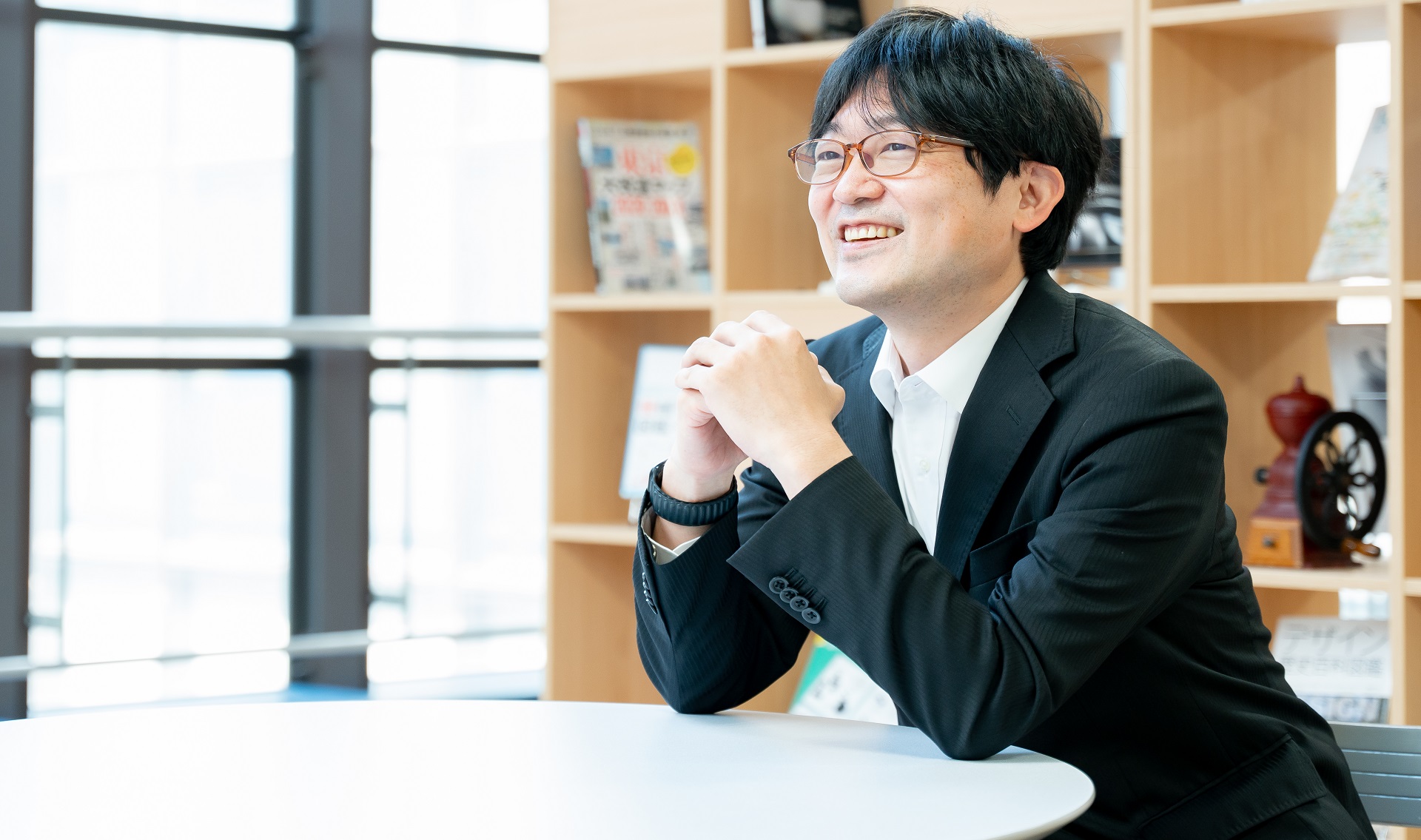FACULTY

MAMORU KOMACHI
Graduate School of Social Data Science/Professor
Field of Study
Computational Linguistics
Natural Language Processing
Artificial Intelligence
INTERVIEW
Unique Appeal of the Social Data Science Program
Hitotsubashi University's SDS offer a world-class interdisciplinary and international research environment that encompasses both social sciences and data sciences. In the undergraduate program, students take courses in both social sciences and data sciences (statistics, informatics, and programming). Data science courses are taught by dedicated SDS faculty, offering specialized and advanced content in science and engineering, while social science courses are taught by professors from other faculties at the university. It is also recommended that students take courses from other faculties to further explore social sciences.
Having both undergraduate and graduate programs in the same campus allows students to quickly access cutting-edge content if they are interested in advanced topics. This is also a great advantage as graduate students can attend undergraduate classes as well. The graduate school offers a preliminary education program for those coming from other fields, which follows the basics while enhancing expertise and cultivating specialists, making it a unique environment for those who want to be in an interdisciplinary setting that feels like "there's no place like this."
Having both undergraduate and graduate programs in the same campus allows students to quickly access cutting-edge content if they are interested in advanced topics. This is also a great advantage as graduate students can attend undergraduate classes as well. The graduate school offers a preliminary education program for those coming from other fields, which follows the basics while enhancing expertise and cultivating specialists, making it a unique environment for those who want to be in an interdisciplinary setting that feels like "there's no place like this."
Innovative education and research encouraged in the Social Data Science Program
As I am in the "AI & Informatics" field, my research focuses on how to address various challenges in artificial intelligence from an engineering perspective. The field of artificial intelligence is rapidly advancing, with new technologies being developed and announced not just every year, but seemingly every month and every week. Amidst this, I would like to nurture significant research that discovers fundamental principles that remain unchanged for decades and pioneering studies that will later develop. In particular, I am considering engaging in international efforts, keeping in mind how we should act to change the world.
Furthermore, as artificial intelligence technology advances, its utilization as a black box will increase paradoxically, making the knowledge of humanities and social sciences even more important. In addition to students who progress from the SDS undergraduate program to the graduate school, I also want to create a research environment where diverse individuals, including those who have studied at other universities, are widely accepted in the graduate school.
Furthermore, as artificial intelligence technology advances, its utilization as a black box will increase paradoxically, making the knowledge of humanities and social sciences even more important. In addition to students who progress from the SDS undergraduate program to the graduate school, I also want to create a research environment where diverse individuals, including those who have studied at other universities, are widely accepted in the graduate school.
CLASS
- (U)Programming 1
- (U)Algorithms
- (U)Natural Language Processing
- (G)Special Issue of Social Data Science
RESEARCH
Research Website
My area of expertise is computational linguistics and natural language processing, which involves research on understanding what is written in words using computers and generating text, such as translations, paraphrasing, or summarizing, using computers. Since the 2010s, deep learning techniques have become widely used in natural language processing, and they have quickly become the leading approach due to their ability to generate significantly more fluent text compared to previous statistical methods. On the other hand, it has become clear that estimating the quality of generated text is difficult, and I am working on research to evaluate the quality of human-written and automatically generated text from various perspectives.
Additionally, I consider answering the question "What is the meaning of language?" as my life's work and am interested in how we understand the meaning of language by modeling the diachronic and synchronic changes in word meaning.
Additionally, I consider answering the question "What is the meaning of language?" as my life's work and am interested in how we understand the meaning of language by modeling the diachronic and synchronic changes in word meaning.
Keywords
- deep learning
- anguage generation
- educational applications
- machine translation


